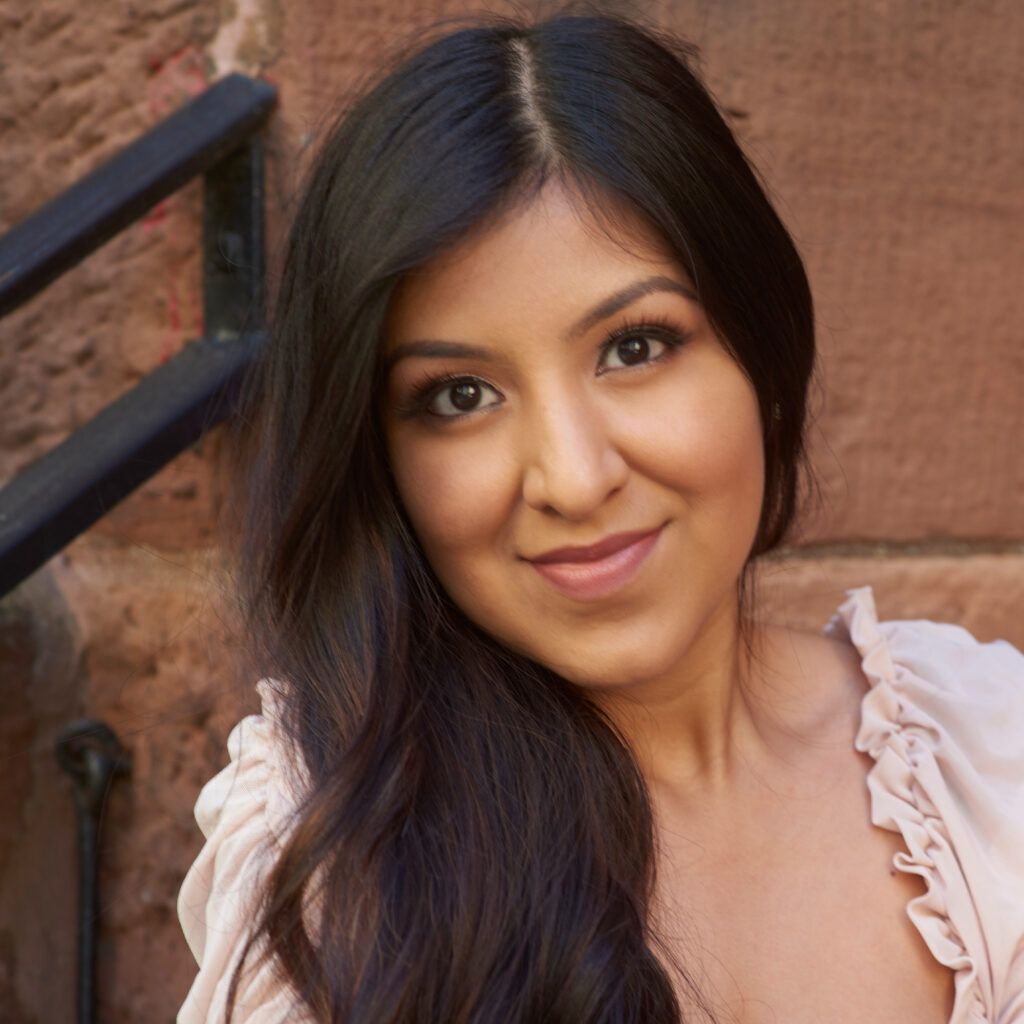
Despite significant life challenges, student crosses the finish line thanks to support from RINI teachers.
At the age of 15, Marian Ramirez Hernandez attended the birth of her cousin and was among the first to hold the new baby. The event proved to be a turning point. “After that, I was like, ‘Oh, wow! I think I want to be a nurse,’” she said.
Soon after, she followed the suggestion of a school advisor and started her freshman year at RINI. Hernandez found the transition difficult at first. She felt her classmates didn’t take school as seriously as she did, and she struggled in classes where teachers expected her to be more independent than she had been before. One particular challenge: keeping up in English as a native Spanish speaker.
When Hernandez approached her teachers about these challenges, they enrolled her in a semester-long college and career course focused on reading, writing, and language development for English language learners (ELLs). They also provided ongoing support from an ELL teacher in the regular classroom. Recognizing her maturity, teachers encouraged Hernandez to seek her nursing assistant certification sophomore year, a privilege usually reserved for juniors.
Things improved socially as well. Once she got to know her classmates, she found them friendly and supportive. The lesson Hernandez took away was to ask for and accept help. “The teachers were always asking you if you need something. If you’d say you need help, they knew how to help you.”
The support RINI teachers offered became essential during her junior and senior years when economic hardship interfered with Hernandez’s school attendance. As a junior, she worked as a CNA in an assisted living facility. She originally committed to 20 hours per week but later increased her hours to almost 40—including a 16-hour double shift on Saturdays—to help with rent and other expenses at home, where she lived with her mother and grandparents.
To keep up with school, Hernandez completed class assignments at home and, on the two days per week when she could attend, stayed after school. “I had to work,” she explained, “and my teachers were there for me. They tried to help me all the time, finding a way how I can be more in school and finding a way how I can solve my personal problems.”
When the COVID-19 pandemic prompted a switch to online learning for everyone in April 2020, the increased flexibility provided Hernandez with some relief. Despite her grueling schedule, she found time to enjoy her job. “I love it,” she said. Many of the residents on her floor have Alzheimer’s disease, so she assisted with dressing them, talking to them, and bringing them their meals. “Some of them didn’t have family,” she said. “They were alone, and I want to give them some love and be talking to them.”
If not for the CNA certification, Hernandez said, she’d have worked as a cleaner or at McDonald’s. Instead, she saw her work as intimately tied to her interests.
For her senior presentation at RINI, Hernandez picked Alzheimer’s disease as her topic. “I learned so much,” she said. “I learned why they end up like that, losing their memory.” From her research, Hernandez understood what her co-workers didn’t: people with dementia aren’t responsible for their behavior. She became concerned about how some of the staff treated the residents. Of one co-worker she said, “I had to tell her, ‘It’s not him. His memories don’t make sense anymore.’”
In the fall of 2020, Hernandez cut back her CNA hours and began attending the Community College of Rhode Island. She hopes to eventually transfer to a four-year institution to complete her bachelor’s degree in nursing and become a midwife at Women & Infants Hospital in Providence.
Hernandez is the first in her family to graduate from high school, but she said RINI prepared her for the challenges ahead. “They already gave me an idea how it is to be in college and what it is like to become a nurse.”
If given the opportunity to advise students considering high school at RINI, Hernandez said she’d tell them about how the certification opportunities “open a lot of doors for you.” She added, “It’s the best decision they can make.”
